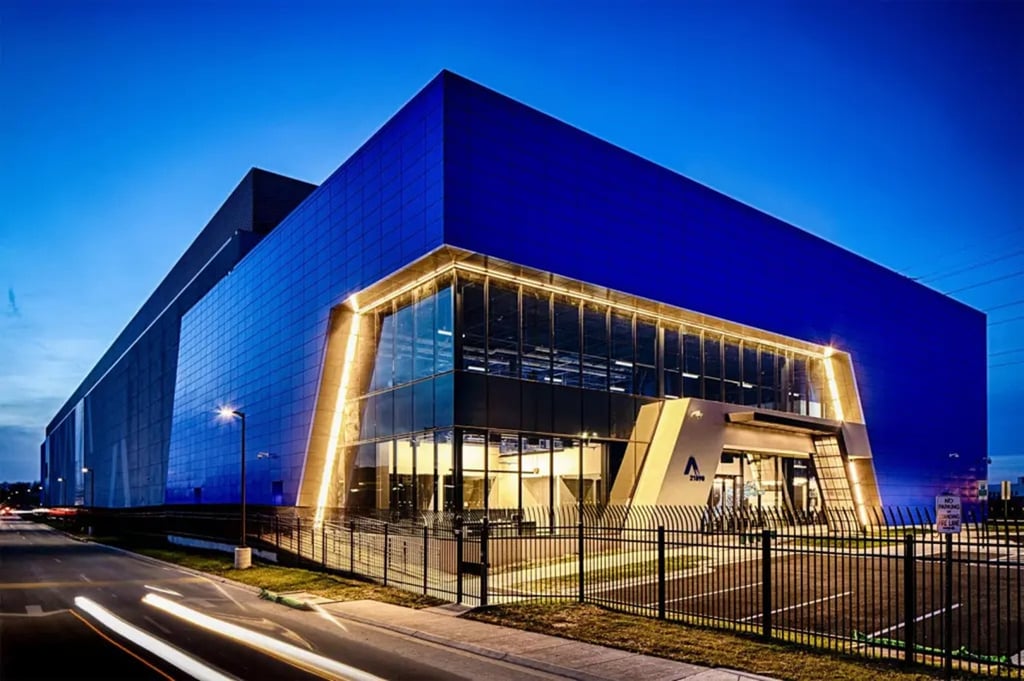Datamation content and product recommendations are
editorially independent. We may make money when you click on links
to our partners.
Learn More
It is often hard to describe the importance of supercomputers. We don’t touch them; the work they do often seems obscure and unimportant, like calculating the results of a galaxy collision billions of years in the future or understanding the Galaxy’s creation billions of years in the past.
These are essential machines for scientists trying to make sense of our reality, but they don’t have any seem to impact most of us ever. However, supercomputers also are used to analyze weather patterns and predict outcomes that save lives, both human and animal.
And now, these machines are not just being used more aggressively for modeling but for creating ever more powerful AIs and focusing on fighting pandemics.
So when you get a considerable performance jump with computers like IBM’s Summit (currently ranked #1 in the world) built with NVIDIA technology, it can have a significant impact.
For instance, Summit is now used to analyze the Covid-19 virus (more to find things that can mitigate the symptoms or kill it than to create an anti-virus, which will require research not yet done). You have the potential to react more rapidly and more effectively prevent and mitigate natural and humanmade disasters.
The El Capitan system announced this last week, which will be built by HPE and will also use AMD technology, would be 10x faster than Summit. While it likely won’t be in time to help with Covid-19, at least not the current strain (apparently there are now two strains) but it could significantly reduce the time to a cure for the next one.
Let’s talk Supercomputers this week and why the competition between them is likely the most essential competition when it comes to protecting against an existential race-ending the threat.
Supercomputer performance is measured in FLOPs, which is floating-point operations per second.
The ranking is kiloflops is 1,000 flops, megaflops is 1,000 kiloflops, gigaflops is 1,000 megaflops, Teraflops is 1,000 gigaflops, petaflops is 1,000 Teraflops, exaFLOPs is 1,000 petaflops. Then we have zettaflops and yottaFLOPS, which we’ll likely get to the next decade.
Currently, the fastest supercomputer in the world has around 148 Petaflops. The proposed El Capitan system is 2,000 Petaflops or 2 Exaflops. This specification makes it potentially more than 10x more powerful than Summit, and it should drop into production next year.
It is interesting to note there is another Supercomputer coming in 2021 that is going to the Argonne National Laboratory called Aurora, and it is around 1 Exaflop or 5x faster than Summit. HPE/Cray will also build it, but instead of using AMD or NVIDIA technology, it will use Intel technology.
All of these machines are built to the specifications set by the government organization, and, like race cars often do for car companies, the advances that appear in these machines can trickle down to High-Performance Servers over time. So Supercomputers do have a valuable impact on our day to day computing capabilities.
Now no one doubts that IBM and Cray can play at supercomputer levels, and both Intel and NVIDIA were used in past leading supercomputers. AMD hasn’t been seen as competitive here for some time, and by taking the crown, even if it is only for a few months or a year, they establish themselves as a peer player in the component space. When it comes to a class of computers focused on keeping us safe, the more competitors, the faster critical advancements will occur.
By the way, I should note that Supercomputer rankings are not stable; for instance, in 2018, IBM’s Sierra was ranked #3, but in 2019, it moved to #2, suggesting a significant upgrade.
China Is Also In The Race
By the way, the US isn’t the only country racing. China is in this, and their Tianjin supercomputer, which came into service a few months back, is impressive and, while slower than Summit, it is within striking distance, and this suggests China likely has technology coming that can compete with Aurora and El Capitan as well.
Now given China isn’t known for being that forthcoming with their technological competence, they could be sandbagging their numbers. This sandbagging suggests they are more advanced than they are reporting, which is something to keep in mind, given this is as much a race between countries as it is a race between companies.
It is interesting that in the top 10 list, there are 3 IBM machines, two HPE/Cray machines, and one machine each from NRCPC, NUDT, Dell/EMC, Fujitsu, Lenovo, and Mellanox. As far as the core technology, there are 6 Intel machines, 5 NVIDIA machines, and 4 Mellanox machines. The El Capitan should not only put AMD in as number 1, but get them on the list.
Wrapping Up
Supercomputers are used for nation-level efforts designed to move the race forward (like calculating how you’d get to Mars, mapping extreme weather events, and, most recently, curing the Covid-19 virus).
They are massive efforts in line with building the pyramids that can have equally massive impacts on how we view and protect ourselves from the world around us. They are used for extensive modeling, and while they aren’t as effective as the fictional computer in the movie Paycheck, they are increasingly predictive and the closest thing we have to a Crystal Ball. Regardless of who wins, the race is essential, and a broad cross-section of the US technology market is focused on making ever-better supercomputers. But we aren’t alone. China is making huge advancements, and they now have at least two supercomputers on the top 10 list (I think they have more like three against the US’s five), and that means they are also here to play.
Given we may owe our continued existence to supercomputers, this may be the most crucial race in the world.
-
Huawei’s AI Update: Things Are Moving Faster Than We Think
FEATURE | By Rob Enderle,
December 04, 2020
-
Keeping Machine Learning Algorithms Honest in the ‘Ethics-First’ Era
ARTIFICIAL INTELLIGENCE | By Guest Author,
November 18, 2020
-
Key Trends in Chatbots and RPA
FEATURE | By Guest Author,
November 10, 2020
-
Top 10 AIOps Companies
FEATURE | By Samuel Greengard,
November 05, 2020
-
What is Text Analysis?
ARTIFICIAL INTELLIGENCE | By Guest Author,
November 02, 2020
-
How Intel’s Work With Autonomous Cars Could Redefine General Purpose AI
ARTIFICIAL INTELLIGENCE | By Rob Enderle,
October 29, 2020
-
Dell Technologies World: Weaving Together Human And Machine Interaction For AI And Robotics
ARTIFICIAL INTELLIGENCE | By Rob Enderle,
October 23, 2020
-
The Super Moderator, or How IBM Project Debater Could Save Social Media
FEATURE | By Rob Enderle,
October 16, 2020
-
Top 10 Chatbot Platforms
FEATURE | By Cynthia Harvey,
October 07, 2020
-
Finding a Career Path in AI
ARTIFICIAL INTELLIGENCE | By Guest Author,
October 05, 2020
-
CIOs Discuss the Promise of AI and Data Science
FEATURE | By Guest Author,
September 25, 2020
-
Microsoft Is Building An AI Product That Could Predict The Future
FEATURE | By Rob Enderle,
September 25, 2020
-
Top 10 Machine Learning Companies 2020
FEATURE | By Cynthia Harvey,
September 22, 2020
-
NVIDIA and ARM: Massively Changing The AI Landscape
ARTIFICIAL INTELLIGENCE | By Rob Enderle,
September 18, 2020
-
Continuous Intelligence: Expert Discussion [Video and Podcast]
ARTIFICIAL INTELLIGENCE | By James Maguire,
September 14, 2020
-
Artificial Intelligence: Governance and Ethics [Video]
ARTIFICIAL INTELLIGENCE | By James Maguire,
September 13, 2020
-
IBM Watson At The US Open: Showcasing The Power Of A Mature Enterprise-Class AI
FEATURE | By Rob Enderle,
September 11, 2020
-
Artificial Intelligence: Perception vs. Reality
FEATURE | By James Maguire,
September 09, 2020
-
Anticipating The Coming Wave Of AI Enhanced PCs
FEATURE | By Rob Enderle,
September 05, 2020
-
The Critical Nature Of IBM’s NLP (Natural Language Processing) Effort
ARTIFICIAL INTELLIGENCE | By Rob Enderle,
August 14, 2020
SEE ALL
DATA CENTER ARTICLES







